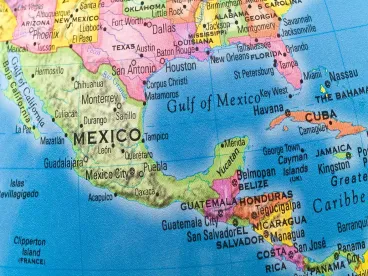On July 15, 2022, Mexico’s Federal Official Gazette published the Ministry of Labor and Social Welfare’s (STPS) draft of NOM (Official Mexican Standard)-037 STPS, which, if adopted, would implement protective measures for teleworkers (remote workers) and their workspaces.
What Is the Goal of NOM-037?
The draft standard aims to establish basic conditions and specific measures to prevent teleworkers’ occupational diseases and accidents that could endanger their physical integrity, life, and health.
Employer Obligations
With this potential amendment to the Federal Labor Law, employers would be required to comply with certain obligations, such as agreeing with the employee on a place of work and ensuring the site has connectivity so that information and communication technologies could be properly used and managed. Additionally, the site would have to have reliable electricity, lighting, ventilation, and ergonomic conditions, and the employer would have to verify the presence of these conditions and ensure a safe workplace that allows for an employee’s development and continuity.
Employers would be required to create a written Telework Policy that outlines risk prevention methods, provides mechanisms for employees to avoid isolation, and states any other rules that ensure teleworkers are being supervised without violating their privacy.
The Policy also would have to state the length of the work schedule and list the guaranteed labor rights and conditions. Employers also would be required to provide a mechanism that allows employees to inform employers of domicile changes or temporary transfers and other relevant requests.
Further, employers would be required to inform employees of any health and safety risks they might face and maintain a checklist of teleworking safety and health conditions. Employers would be permitted to visit remote workspaces, with the employee’s prior authorization, to ensure there are no evident risks and to follow up on accident notices that occur outside the workplace, with cause or in the exercise of their teleworking activities. Social Security protocols would have to be followed at all times.
Employee Obligations
NOM-037 would require employees to provide employers with written evidence of all physical safety conditions in the workspace and comply with the Telework Policy established by the employer. If conditions are not met, the employer could elect to cancel telework and require the employee to resume physical attendance to the workplace. Remote employees would be responsible for properly maintaining the provided equipment and furniture, reporting any changes of address, health conditions, a force majeure that prevents the employee from continuing their work activities outside the workspace, and any occupational hazards suffered from their duties in the workspace.
Health and Safety Conditions
NOM-037 would establish three types of risks and ways to avoid them:
|
1. |
|
Physical risks: work area must be clean and tidy, free of unnecessary objects, and well-lit, with adequate temperature and ventilation, as well as a noise level that does not prevent the worker from concentrating on their work. |
|
2. |
|
Ergonomic risks: workers must have a comfortable environment, including equipment and accessories, to carry out their duties, avoiding tension and having an adequate table that allows them to lean comfortably and an ergonomic chair that helps maintain good posture. |
|
3. |
|
Psychosocial risks: the workspace must provide privacy during the workday, preventing anyone from obstructing an employee’s activities and allowing them to disconnect at the end of their work schedule and achieve balance between work and family life. |
Under the draft, employers could hire an external inspection unit to evaluate compliance with the Telework Policy. Any compliance verification would be valid for two years, as long as the conditions were not modified.
The draft will be posted for 60 days and is open for public comment during that time.
* This does not apply to matters or laws in the United States, nor to other jurisdictions outside Mexico.





 />i
/>i
